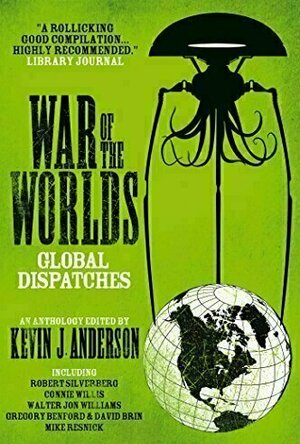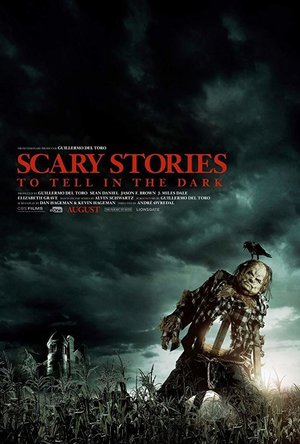Junot Diaz and the Decolonial Imagination
Monica Hanna, Jennifer Harford Vargas and Jose David Saldivar
Book
The first sustained critical examination of the work of Dominican-American writer Junot Diaz, this...
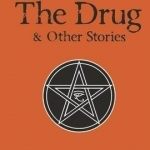
The Drug and Other Stories
David Tibet, Aleister Crowley and William Breeze
Book
This revised and expanded second edition brings together the uncollected short fiction of the poet,...

Jazz and Palm Wine
Dominic Thomas and Emmanuel Dongala
Book
Jazz, aliens, and witchcraft collide in this collection of short stories by renowned author Emmanuel...
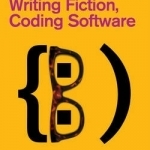
Geek Sublime: Writing Fiction, Coding Software
Book
This is a great novelist on his twin obsessions: writing and coding. What is the relationship...
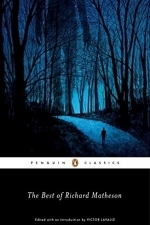
The Best of Richard Matheson
Book
The definitive collection of terrifying stories by “one of the greatest writers of the 20th...
Science fiction fantasy
LilyLovesIndie (123 KP) rated Honour in Books
Nov 5, 2018
This stunning collection of short stories has got to be one of my favourite items on my kindle. When I read these I experienced such a depth of emotion and they moved me so much that I had to keep putting it down to get tissues and mop up the mess that I became. This, by far, is Feeney's greatest work to date. She elicits such a wonderful amount of emotion from you, and this is all the more remarkable when you consider that some of the stories are just a few thousand words long. In order to do each story the justice they truly deserve, I am going to briefly review each book before summing up my main ideas. So if you're sitting comfortably, I'll begin....
Honour
A young woman at a graveside, the rain falling down, already the emotions are running high, and this is just the first paragraph of the story, yet I'm hooked. Throughout the whole of this story Feeney leads you in a direction, letting your imagination fill the gaps, but then at the last minute she deals her hand and tells you exactly what is going on, and boy did it knock me for six! I was most definitely not expecting that turn of events, but strangely, it totally fitted. Apologies for the vagueness, but I don't want to spoil it for you as this is one of the key features of this story.
Deserter
Just as the title suggests, this story deals with a deserter, the officer who tries to cover it up and his family dealing with his actions at home. I know what you're thinking, there's enough material there to write a whole book! But Feeney writes this superbly, capturing the emotions of all the key characters in just a few short chapters. Jack's dilemma, and the reasoning behind his desertion, are both incredibly touching and very sensitively written. As someone who can't even begin to comprehend what horrors soldiers must see every day, I really feel like Feeney gave us a glimpse into a tortured mind, a soul that was broken and in need of so much healing that just simply wasn't available. She also deals fantastically with the stigma attached to deserting in a very delicate and sensitive manner, highlighting the other side of the story incredibly well.
Silence is Deafening
I've read and re-read this story so many times, but it still kills me every time! It's so emotionally written, charged with sadness and a sense of duty, a sense of honour. Strangely, I engaged more with Evelyn as I found myself imagining what her emotions would be when she wakes up and reads Joseph's letter. I could feel the ties that bound them together being strained and pulled, the pain they must have felt. It was just so well written the intensity of their love was completely real, it charged the room around my and stole my breath. But what I loved most about this story is that there was hope at the end. He might have survived, he might have come back. The tiniest glimmer was there, and it captured my imagination and sent seeds of thought rooting deep in my head. It's not a story you'll forget in a hurry, but in the best possible way!
Letters to No One
This is perhaps my favourite military based story I've ever written, but for me it is head and shoulders above the others in this collection. I could talk for hours about why I loved this story so much, but I'll try and summarise it and not spoil anything. The strongest feature of this particular story is it's wonderful believability and 'normal' way of approaching what is, to non-military families at least, a very abnormal situation. The letters are funny, yet very much full of a sadness at the separation and need to see each other one more time. Jonno is a great character, and although he doesn't feature much directly, it's the indirect references to him in his families letters which really bring him to life. Little Michael is totally adorable, and his letter is perhaps my favourite purely for the innocence only a child can have. The whole story touched me more than any other in this collection, eliciting full on body shaking sobs and I can only conclude that it is because it is a. wonderfully written and b. incredibly realistic. As much as I hate to admit it, this has probably happened to countless families out there, and that immense sadness just crushed me and opened my eyes to a whole new way of looking at things.
Night Terrors
Initially, I found this quite difficult to get into, it's the one story in the collection I wasn't over keen on as I read through. However, it's a bit of a 'grower' and, like 'Silence is Deafening', it planted hundreds of little seeds of thought in my brain and when given time to develop they just grew and grew until they were out of control. Dealing with what is essentially PTSD, and how it affects not only the sufferer but also their family, 'Night Terrors' has so much it can teach the reader. We all think nothing of our 'normal' lives, but this was another story that really opened my eyes to the troubles being in the military can cause. Carl's dad clearly struggled for years, never feeling he could discuss him experiences and so they literally terrorised his dreams. It's incredibly sensitive in how the story deals with what is a very current and prevalent issue and Feeney deserves a great deal of credit for not only having the balls to deal with this subject matter, but also for doing it so brilliantly. Again, this is another emotionally charged piece of writing, but Feeney really does develop the plot so well and so subtly that it sucks you in without you noticing.
Welcome Home
The final story in the collection is as wonderful as the others. A happy ending, a reunion, a feeling of hope to carry forward. This is the ending we all want for all our soldiers, and Feeney cleverly reminds us that no matter how many may perish, and however sad that may be, we must always keep looking for that glimmer of hope, and take the opportunities of happiness that are offered to us when they are there, because we never know when they will be snatched away.
One of the key features in all of these stories is how engaging they are, despite what is, at times, very upsetting subject matter. The characters pull you in, the circumstances, although fictional, are tinged with a reality that brings you crashing down to ground when you think about them after (and believe me, you will) and you realise, 'that could have actually happened to someone'. It's a humbling thought, and one that really makes you think, but in a good way. Reading this book made me so much more thankful for the sacrifices servicemen and woman make, and the pain their families must experience, but mostly it made me grateful for my own life.
Something else that shines through is how real everything feels in these stories. I know Feeney did a large amount of research into military procedures and that is evident with the protocols, the addresses, the description, just everything really! It's clear that this writing means a lot to the author, and that passion for respect and honour of our armed forces just oozes from every page and fills you with a great sense of pride and patriotism. It's strange to feel proud of something when you're reading (unless it's something you've written), but Feeney manages to elicit that, as well as many other emotions as you're reading and it just builds to a huge crescendo.
Another key feature is the description, and this is a theme that is evident throughout the whole collection. Feeney puts so much into her writing. You can clearly see in your mind the characters, you can feel the emotions, you hurt when they hurt, smile when they smile. It's her attention to the small detail in this story that really gives this story that extra something. Even though you don't know all the specifics like names and ages, we know plenty to cry for their loss and smile with them in their joy. You hurt when they hurt. It's very rare I find a story that moves me in such a way, especially one that is just pages long, but that is exactly what this story does.
In conclusion, this book is truly phenomenal, one of the best pieces of literature I have read so far this year. It's engaging, thought provoking, realistic, easy to read, but above all, it's just, well, words fail me. Honestly, I cannot recommend this highly enough. Five stars is not enough for this book, and it truly deserves the highest accolades possible. Seriously, go one-click! It's now available on Amazon UK and Amazon US, but heed my warning, you want a lot of tissues near you when you read this, tear-jerker doesn't quite cover it!
* * * * * *
I am SO excited about reviewing this and interviewing the author over on Lily Loves Indie and Ramble Media on 1st November as part of the Blog Tour! Watch this space for updates and snippets of my review.

Love Videos - Romantic Photo Slide.show Maker
Photo & Video and Lifestyle
App
Dear users, check out the newest member in our photo editor family! This season, it's time to turn...
Awix (3310 KP) rated War of the Worlds: Global Dispatches in Books
Feb 3, 2020
A bit of a mixed bag, to be honest: some of the stories just restage elements of Wells with a different backdrop, others treat the Martians as a backdrop for more introspective tales, still others indulge in literary pastiche. Unlikely juxtapositions and in-jokes abound - Rudyard Kipling meets Gandhi, Tolstoy meets Stalin, Samuel Clemens (d. 1910) makes reference to John Christopher (b. 1922). The best stories are mostly the ones which recognise the political/satirical subtext powering the Wells novel and attempt to do something similar - so Barbara Hambly's story concerns British imperialism in India, and the effect of the Martians on the situation there, while another looks at the consequences for pre-revolutionary Russia. That said, Connie Willis' Hugo-winning contribution sends the whole conceit of the novel up with a predictable mixture of tongue-in-cheek drollery and sheer absurd silliness, as the unlikely effect of a Martian encounter on the poetry of Emily Dickinson is revealed (especially considering Dickinson died twelve years before the coming of the Martians). The good stories are very good indeed, the less good ones merely a bit tedious. A worthy and worthwhile tribute to the original novel.
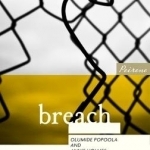
Breach
Olumide Popoola and Annie Holmes
Book
In the refugee camp known as The Jungle an illusion is being disrupted: that of a neatly ordered...
Gareth von Kallenbach (980 KP) rated Scary Stories to Tell in the Dark (2019) in Movies
Aug 9, 2019
The 80’s was a decade obsessed with the occult and works of fiction that parents thought were written to corrupt the minds of the youth of the age. Before video games were blamed for all the evil in the world there was Heavy Metal music, the fantastical role-playing games such as Dungeons and Dragons and books such as these that parents rallied around and attempted to ban from schools and after school functions. Looking back now at the hysteria that this caused is almost laughable, but for those of us growing up in that time it was a very real threat to the imaginations of youth around the globe. Outside of this brief history lesson however, I wondered how the books would translate into a movie.
Our story begins on Halloween night, the year is 1968 and the Vietnam War and the upcoming presidential elections are on everyone’s mind. Stella (Zoe Colletti) and her nerd friends Chuck (Austin Zajur) and Auggie (Gabriel Rush) decide that this will be the year that they get revenge on the local bully Tommy (Austin Abrams) for all his years of stealing candy from them on Halloween. After things go predictably wrong, the young group of kids are pursued to a drive-in theater where they seek refuge in a car that is owned by another out-of-town youngster named Ramon (Michael Garza). As thanks for “saving” them from a certain beating, Stella and the group decide to take Ramon to a real-life haunted house. A place where a young Sarah Bellows would tell stories to frighten children only for them to end up dead days later. While exploring the house the young group discover the hidden room of young Sarah Bellows and come across her book of “Scary Stories”. Unable to contain her own curiosity, Stella takes the book home with her and watches as the words on the pages turn into living nightmares of their own darkest fears.
Produced by Guillermo del Toro, Patrick Melton and Marcus Dunstan, Scary Stories takes a handful of fan favorites and weaves them into a “scary” story of their very own. Instead of simply being a collection of haunting tales, each one serves a purpose, whether it’s the “Red Dot” or “Harold”, each one is used to drive the story even further along. While at first, I was hoping that it would be a collection of short stories featuring these timeless classics, the way in which each individual story progresses the plot leads to a far more interesting experience overall.
Those looking for a movie filled with frightening tales that will have you reaching for the closest shoulder (whether you know who it belongs to or not) will be in for a bit of disappointment. That’s not to take away from the incredible amount of vision needed to bring these classic stories to life, but it takes on a far more contemporary feel, then the dark stories and supernatural visions of the books that came before it. The film comes away feeling more like Goosebumps and less like Freakshow which makes sense given its PG-13 rating and its obvious pre-teen to teen demographic. The movie is still fun however, particularly for those who fondly remember the stories from their youth and is one that will proudly sit beside the likes of Hocus Pocus when it comes to network television down the road as part of its likely Halloween line-up.
4 out of 5 stars
http://sknr.net/2019/08/08/scary-stories-to-tell-in-the-dark/

